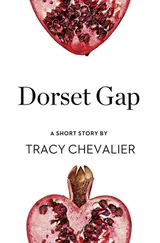Amanda shut the thought down before it could form. She wasn’t ready to go there yet. She wasn’t strong enough to examine her feelings about Gabby. She’d buried them for one year, six months and twenty-three days. She could bury them for a few more days or weeks or months—whatever it took for her to feel strong enough to deal with them.
But even as she mentally repeated the too-familiar sentiment, she knew it was a lie. She would never be strong enough to accept Gabby’s death. She’d failed her daughter, and that was not something she could get over.
Shaking again, Amanda paused for a moment and looked around the camp and surrounding desert that were as familiar to her as her own face. It was hot, the sun high in the sky as it roasted this part of East Africa. Drought and famine, AIDS and Ebola, tuberculosis and cholera, more diseases than she could count had taken their toll, year after year, until some weeks bodies actually piled up in the villages, waiting to be buried or burned.
But despite everything that had happened here in the past three decades, Africa was beautiful. The landscape was empty, barren, but there was an elegance in its stark simplicity. Endless miles of dirt and sand and desert brush as far as the eye could see, the sun reflecting brightly off the hard, arid ground. It appealed to something primitive inside of her, this country with its harsh truths and frightening realities.
There was beauty in its complete and utter devastation.
At a loss for what else to do—knowing only that she couldn’t go back to her tent and stare at the four canvas walls without losing what was left of her control—she began to walk. Without her patients, without her job, it wasn’t as if there was anything else to do out here but wander for a while, saying goodbye to this continent that had such a huge impact on her life. If things went as she was afraid they would, then it didn’t matter what Jack said. She was done here.
She walked for a long time—through the village and beyond, oblivious to the heat that was so much a part of Somalia. It was harvest time for the meager crops that this poverty- and drought-stricken nation could produce, and the men were few. Between the wars, the famine and the harvest, the village was almost a ghost town during the day. Many of the children were in the fields with their mothers; the others were in the hospital or at the government-run school that was built on the east side of the village. It was here that they learned math and history and how to read and speak English—at least until they had to give up their education to help feed the family.
She shook her head. Somalia had so many languages. Somali and Arabic were the two main ones, but each village in the line sweeping through the nation’s interior had a variation of its own. Her village, Massalu, spoke Chimbalazi, but most of the children who lived here were almost illiterate in the language of their parents. The language of their blood.
Her fatigue—a soul-deep weariness—caught up with her, and Amanda slumped onto a large rock. Her thinking rock. She’d used it so much in the past ten months that she could swear she’d worn a flat spot on it. Or maybe she wasn’t the only one who came to this desolate stretch of land to brood. God knew, there was more than enough to think about…
The sound of a faraway engine caught her attention and she looked up in time to see a Learjet coming into view. She watched it for a few minutes, until it passed over her, but she grew alarmed when the plane slowed as it approached the village.
Who could it be? Only the top government “officials”—Samatru and his crew—had access to planes like that. But even they usually arrived by car. Fuel and airplanes were hard to come by and saved for very special occasions.
The plane coasted in for a landing on the dusty road that ran about a thousand yards in front of the hospital, and though it was officially no longer her business, she couldn’t help worrying. Nor could she stop herself from running toward it as she tried to figure out what new threat the clinic was in for.
Despite the famine ravaging the country, it had been almost impossible for their organization, For the Children, to gain access to Somalia—the government frowned on outside interference. Even reporters and tourists had very restricted access to the small besieged nation—which made running a clinic here that much more difficult.
Add in the fact that the government had decided the doctors were ripe for exploitation, and it was a miracle that the hospital managed to hold on to any supplies to treat their patients.
As she ran, Amanda wondered what official had gotten a sudden “concern” about their presence here? And how much money it would take for his “attack of conscience” to be mollified.
How many people had to die so that he could wear his expensive suits and fly in his little plane? How many children had to starve?
Concern whipped through her, making her run faster despite the heat and the exhaustion. Making her incautious, when her life and the lives of the other doctors and patients at the clinic often depended on keeping a delicate balance with the current administration.
But what did she have to live for?
Gabby was gone.
Simon, the only man she had ever loved, had disappeared from her life, for good this time.
She had shut out everyone who cared about her until she was alone, isolated.
And now that Jack had stripped her of the only reason she had to get up in the morning, maybe she was better off dead.
Despair swamped her—black and overwhelming—but her long strides didn’t falter. Jack was a good doctor and a hell of an administrator, but even after ten years in these war-ravaged conditions, he had no tolerance for the way the country—and its corrupt officials—worked. If he lost his temper, he could bring everything they’d accomplished down around their heads.
Not that she blamed him. Every dollar he paid the rulers was one less to buy medicine and food for the people who desperately needed it. All the money he’d paid through the years meant days and weeks off the lives of Mabulu and all the other boys and girls like him.
But as Amanda approached and got a glimpse through the small crowd that had gathered when the plane landed, she realized that this was no government official. Dressed in jeans and a clean, white Aerosmith T-shirt, the newcomer stuck out like a sore thumb among the impoverished villagers who had come to observe the landing.
The sun glinted off too-long wheat-blond hair, but it wasn’t until she caught sight of the worn leather backpack over the visitor’s shoulder that the truth occurred to her.
She stopped breathing, shock holding her lungs and rib cage immobile.
Still, she told herself that she was wrong. It couldn’t be him.
He was in Haiti, putting together a documentary about earthquake victims.
In Colombia, investigating the cartels and their negative influence on the indigenous population.
In Cambodia, uncovering shady CIA deals. Anywhere and everywhere but here, where she’d been safe from thinking about him, insulated against her past by the immediacy of the present.
But the build was right—tall and rangy with a lean, long-legged frame that was deceptively strong. The shaggy blond hair worn too long—more from carelessness than fashion. Even the T-shirt advertised his favorite band.
Her breath caught in her throat, but her brain refused to accept what her eyes were seeing. That Simon was here—here—when years ago he’d decided that he’d had enough of Africa’s endless suffering.
But if it was him, what was he doing here? There had been no coup, no newly reported human-rights violations, no recent massacres. Only the ongoing famine that was neither glamorous nor seedy enough to attract the Western press here.
Читать дальше












